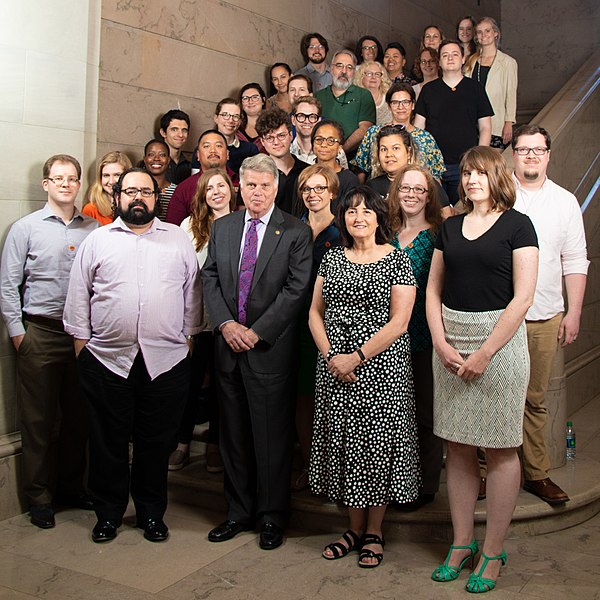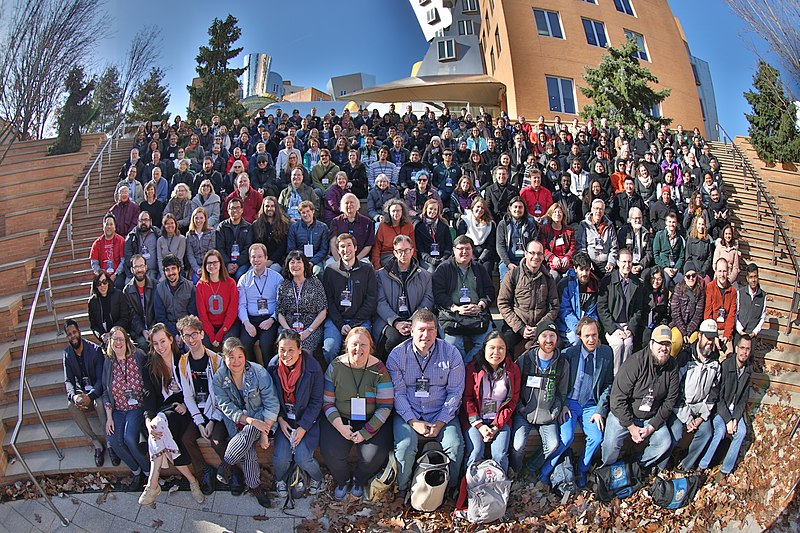Did you know that North America (the United States and Canada) is home to the largest population of Wikimedia readers and editors in the world? North America also offers a robust slate of knowledge institutions that are increasingly opening access to their resources online. Volunteers and affiliates in the region play a vital role in expanding access to this free knowledge, as well as growing overall Wikimedia content for a global audience. Like other social movements, the editing communities in North America also struggle with diversity and inclusion, especially along racial and gender lines.
Growing knowledge equity through deeper regional learnings
This year, as part of the Wikimedia Foundation Annual Plan, we introduced a focus on regional work as part of our own commitment to advancing knowledge equity and supporting movement strategy. We are all part of a global movement that spans regions, languages and communities, and this regional focus will allow the Foundation to better understand localized needs and regional trends as part of our work.
We launched this new approach at the beginning of this fiscal year by improving our coordination on a regional level. Foundation teams working in the regions and partnering with local communities now convene more intentionally around defining the impact that is possible for us to make together in different regions of the world.
Each quarter, we will meet to discuss regional and historical trends and activities by individual volunteers, Chapters, User Groups, Thematic Organizations, partners organizations in the free knowledge ecosystem. These sessions are an important check-in as part of our Annual Plan, and look at planned work by various teams at the Foundation to prioritize and align resources for focused results and more impactful partnerships. Here are our learnings for North America.
Contributors
North Americans are prolific contributors to the Wikimedia projects. There are around 35,000 unique active editors with at least 5 edits per month in North America, out of 206,000 total in the region. These numbers represent 17% of the global total editors, meaning that North Americans are active on the Wikimedia projects at a rate higher than their share of the global population.
Affiliates and Movement Partners
North America is home to 15 affiliate groups. There are three chapters in North America: Wikimedia Canada, Wikimedia District of Columbia, and Wikimedia New York City. While many of the remaining user groups are local to a US city, state, or region, there are also thematically focused user groups which started in the US and now have global reach. For example, Wiki Project Med supports the development and maintenance of high quality healthcare information on Wikimedia Projects, and Whose Knowledge? builds toolkits and resources to address systematic biases in the accessibility and general representation of marginalized knowledge.
Because of how long the Wikimedia movement has been established in North America, it includes a variety of supporting organizations that may not fall into the traditional affiliate or user group model. One of these is the Wiki Education Foundation. Wiki Education has an impressive track record of outreach into higher education. Since 2010, their classroom editing programs in US and Canadian universities have reached over 100K students, and have been documented to bring in 19% of new active editors to English Wikipedia (a majority of them women and non-binary).
Recent funding supported underrepresented knowledge and communities in the region, with projects led by Wikimedia affiliates AfroCROWD, Black Lunch Table, and Art + Feminism as well as other organizations.
The North American region also has a long history as a hotbed of “GLAM-Wiki” activity, with collaborations with leading institutions such as the Smithsonian, the Metropolitan Museum of Art, the National Archives, the Digital Public Library of America, and the National Library and Archives of Quebec. Collectively, with the help of Wikimedians in residence, these partners have contributed millions of images, digitized artifacts, and data sets to enrich and address knowledge gaps on the Wikimedia projects. Outside of the GLAM sector, there are also North American groups leading cultural and language preservation work. For example, there is a volunteer driven effort in Canada to coordinate contributions across four Wikipedias for indigenous languages in Canada, as well as a Wiktionary for the inuktitut language.
Closely linked to this rich GLAM and culture work is a history of leadership incubation programs, or “boot camps,” run by Wikimedia DC in partnership with the Smithsonian and the US National Archives. These training intensives have played a formative role in the development of many influential Wikimedia organizers.

Every November since 2014, these organizers as well as other members of the North American community have gathered together for a regional conference. The conference has been virtual since 2020. This year’s WikiConference North America takes place on November 11-13 and will be held in conjunction with Mapping USA, a celebration of Wikimedia and OpenStreetMap communities across North America.
Readers
With all of this activity happening on and off-wiki in North America, readership of the Wikimedia projects in North America is the highest in the world. While home to only 5% of the world’s population and 8% of internet users, North America accounts for 71% of the global annual total pageviews across Wikimedia projects.
Readership matters because it is how the information shared across Wikimedia projects translates into meaningful knowledge for all to access. Yet Wikimedia can only offer the “sum of all knowledge” when everyone is able to access Wikimedia, and see themselves represented on our pages. Recent research on knowledge equity by the Wikimedia Foundation highlights that there are significant differences between US communities in how engaged they are with Wikipedia, the movement’s largest project, and the degree to which they feel represented on our platforms and in our content.
The research showed that women, across communities, are the most skeptical of Wikipedia’s support for gender equality. In terms of participation, Black and Hispanic women have the lowest rates of awareness and usage of Wikipedia among groups surveyed, and tend to view the platform as less “accepting of people like me.” This information parallels other data from the 2021 Community Insights Survey, which shows that LatinX and Black editors are underrepresented among editors in North America. More positively, the LGBTQ+ community, as well as those with physical or mental health conditions, are highly engaged with Wikipedia, and perceive the platform to be inclusive and supportive.
So how can the Wikimedia movement build on and support the ongoing work of volunteers and affiliates in the US and Canada that address these gaps? Within the Wikimedia Foundation, we are working to understand how we can better grow audiences and contributors who are under-represented in North America as part of a new regional focus. Some questions we are looking at include:
- What role can editathons and campaigns play in helping us increase content and contributions from underrepresented groups?
- What work by volunteers and affiliates needs further support and connection?
- What voices are missing in existing efforts? Are there existing partnerships worth strengthening or new ones worth building?
- How can our work in North America better connect to global efforts on knowledge equity, and vice versa?
Please share your thoughts on what’s missing in the comments below, and we will share an update in the coming months.

Can you help us translate this article?
In order for this article to reach as many people as possible we would like your help. Can you translate this article to get the message out?
Start translation
